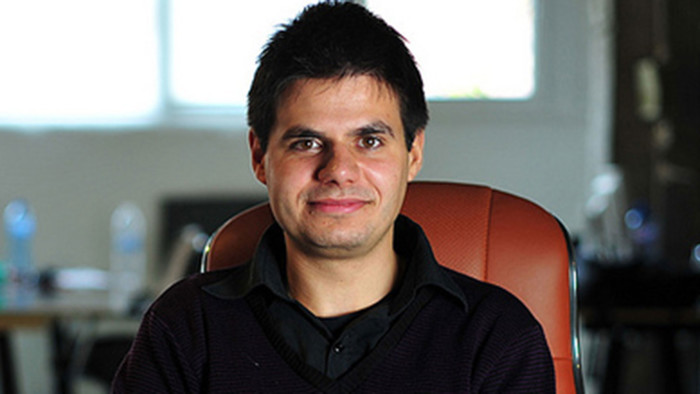How drones lift agriculture in Bulgaria to a higher plane

Roula Khalaf, Editor of the FT, selects her favourite stories in this weekly newsletter.
Stefan Dimitrov, a farmer in Bulgaria’s central Rose Valley, has some unusual guardians to protect his 1,500 hectares of land from criminals, wild animals and crop failure: they fly at 60 kilometres per hour and run on rechargeable batteries.
Mr Dimitrov’s drones are revolutionising the way he and fellow farmers in Bulgaria are managing their business. The company behind them hopes the drones will become as essential to agriculture as tractors and ploughs.
“[The drones are] making the agriculture sector an exciting place to be,” says Mr Dimitrov. He adds that by using data from them “we have been able to improve our day-to-day activities through the amount of information we have to hand.
“One of the main benefits I have seen is the saving of money, time and resources, meaning that I can focus on scaling up the business.”
The drones charge from the mains electricity supply. They take off, fly and land autonomously, and have enough power to stay up in the air for about 90 minutes. Three drones, making two flights a day each, can monitor a 10,000 hectare farm using digital images and live information.
“It can spot people stealing crops, animals that have entered the land, or it can monitor areas where crops are not growing properly or there are other problems,” says Tihomir Nedev, co-founder of Flyver, the company behind the technology.

The Sofia-based company, which was founded in 2013, is one of many eastern European technology start-ups aiming to tackle local demands and so create business opportunities across the region. Like many countries in the region, Bulgaria is increasingly turning to entrepreneurs and innovators to drive future growth as it tries to leave behind its low-cost manufacturing economic model.
“One of the reasons the central eastern European market is so exciting is that it does not have the existing IT legacy that can sometimes restrict growth,” says Don Grantham, president of central and eastern Europe for Microsoft, which provides Flyver with infrastructure and technology support under its BizSpark program.
He says that combining technology with “a traditional sector” is not always straightforward.
However, the increasing application of the “internet of things” — connecting objects it was previously impossible to link together — is affecting agriculture as it is many other industries, Mr Grantham says.
Many central and eastern European countries still rely on farming to provide a large chunk of their economic output and, typically, employ a disproportionately larger share of the total workforce compared with service and manufacturing industries.
Countries such as Bulgaria and Poland, where about 20 per cent of the working population are employed in agriculture, are keen to use technology to improve the industry’s efficiency, which is often held back by outdated practices and business models.
Mr Grantham says the drone technology is an example of how innovation is transforming the industry. He adds that it represents “huge opportunities for the way we will grow and cultivate our food”.
But entrusting their land management to a drone and software hosted on cloud servers is a big leap for farmers who have been taught to plan for tomorrow’s weather by the colour of the evening clouds.
One of the main stumbling blocks in marketing the drone system, which costs around $10,000 a year for an average farm, is convincing farmers used to traditional methods and centuries-old techniques to take a punt on technology that only a few years ago was mainly limited to expensive military and security surveillance applications.
“One of the problems is that they fear we come from a software and a technology background and have no idea about farming,” says Mr Nedev.
To counter this he has demonstrated the product at agricultural shows and sought to join forces with established farming brands. “It takes some time for people to get familiar with new ideas, new systems.”
Flyver grew out of discussions with farmers who were keen to find a smarter way to manage their crops. Mr Nedev now hopes the costs will fall as the technology becomes more widespread.
The company plans to prove its business model and hone the technology in Bulgaria before expanding across central and eastern Europe.
Long-term proposals include a push into the US and western Europe as autonomous aircraft regulations permit.
“These innovations are important to the industry as a whole,” says Mr Dimitrov. “Aside from the immediate working benefits, becoming a technology-driven sector will help attract more young people into the field and promote further innovations.”
Comments